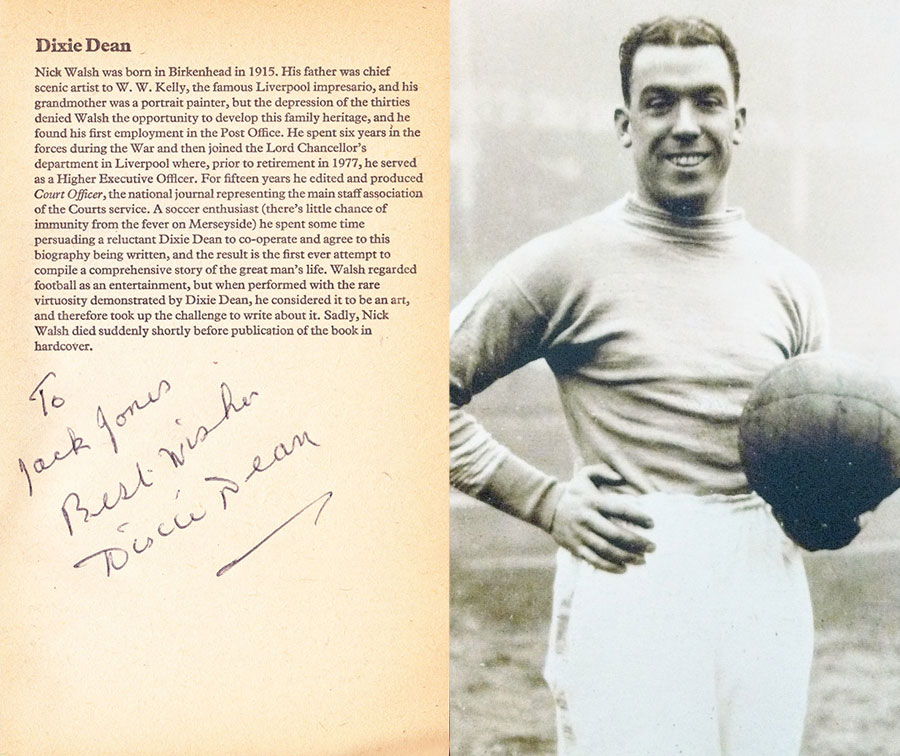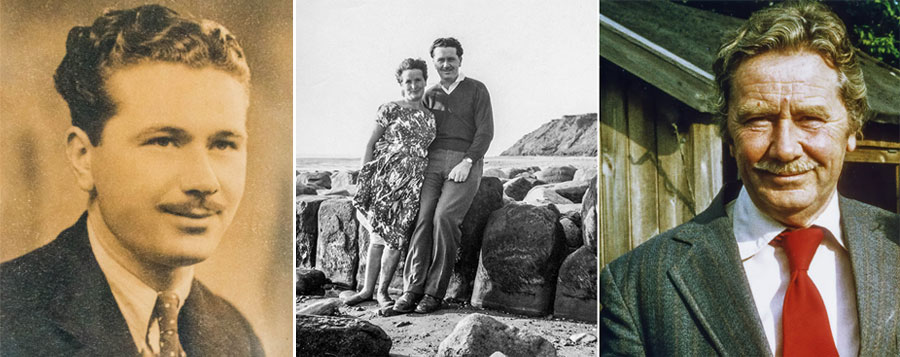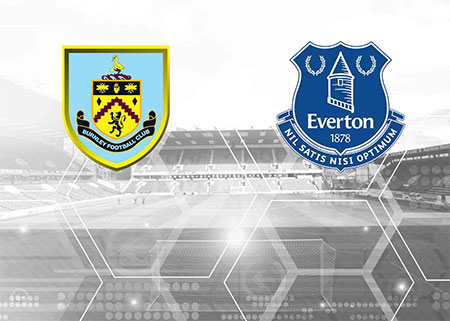Nick Walsh and the First Biography of Dixie Dean
It would be nearly 40 years before the supreme Everton marksman’s amazing life story was properly told. The person to thank for capturing Dean’s memories in book form was fellow Birkenhead man, Nick Walsh.

The goalscoring exploits of Manchester City’s Erling Haaland in the 2022-23 season prompted a resurgence of national interest in English club football’s greatest marksman, William Ralph ‘Dixie’ Dean. With speculation rife that the Norwegian might equal Dean’s 63 goals in all competitions in a single season (in the end, he reached 56), people were keen to draw comparisons with the man from the Wirral.
Remarkably, just shy of five decades passed from Dean’s glorious exploits in the 1927-28 season before his footballing life and times were committed to the pages of a biography. Published in 1977, Dixie Dean: The Story of a Goalscoring Legend was a fitting tribute to the peerless centre-forward. It was also the first Everton FC history tome of any note since Thomas Keates’s groundbreaking golden jubilee history, released posthumously in 1929.
Dean’s biography was the brainchild of Nick Walsh. Eight years the striker’s junior, Walsh also hailed from Birkenhead. His father was chief scenic artist to William Wallace ‘W.W.’ Kelly, the famous Wirral-based theatre impresario (and husband of noted actress Edith Cole – the pair were leading animal rights campaigners). The depression of the Thirties denied Walsh the opportunity to follow the family tradition of working in the arts (Walsh’s grandmother was a portrait painter); instead, he found employment in the General Post Office. After six years serving in the forces during the Second World War, he joined the Lord Chancellor's department in Liverpool, working in his later years there as a Higher Executive Officer.
Like many young people in the 1920s and 1930s, Walsh had often watched Everton and Liverpool on alternate weekends – so he was familiar with Dixie Dean and his achievements. He regarded football as a form of entertainment – but considered it an art form when performed with the rare virtuosity demonstrated by Dean.
In the 1960s and 1970s, Walsh would drink in the Acorn pub in Bebington, near to his home. One night, on leaving the hostelry, he chanced upon Dean at the adjacent bus stop and struck up a conversation. He told the former goalscoring great that it was disgraceful that no one had recorded his achievements in the game – Walsh then grabbed the opportunity to put forward that he was the person to right this glaring omission.
Dean was a little hesitant at first but came round to the idea – Walsh could be quite the persuasive man when he had his mind set on something. He was no stranger to writing, having been editor of Court Officer, the national journal representing the main staff association of the Courts service. During his 15 years at the helm, the publication regularly won awards for its high standard of journalism.

Left: The dedication from Dixie Dean to Marcus Heap's grandfather;
Right: the Everton legend himself
With Dixie Dean on board, Walsh got to work on the project. He subsequently met Dixie at his home on numerous occasions and interviewed him extensively. Dixie's memory was not totally reliable, due to the passage of time, so the biographer spent countless hours fact-checking at the archives of the Daily Post and Liverpool Echo, and in Liverpool Central Library. For example, in the game in which he scored his 60th goal, Dixie had described leaping above the centre-half and powering in a header from a corner. It turned out that the Arsenal defender he named was not even playing in the game.
Walsh’s grandson, Karl, was very close to his grandfather, and can recall him putting in great effort to produce the book, from the research on Dean’s background through to committing the words to paper. After several years on the project, Walsh negotiated a publishing deal with Macdonald and Janes Ltd. Late on in the development of the biography, he willingly agreed to share the royalties with Dean – his motivation was to record the achievements of the greatest goalscorer of all time, rather than to line his own pockets.
Having retired in the summer of 1977, he commenced the final manuscript – only to suffer a major heart attack and spend three weeks in hospital at Clatterbridge. He had the publisher’s deadline to meet, but sadly died of a further heart attack at home, three weeks later, on 16 August. Walsh was just 61. It fell to his son-in-law, Dave Foulkes, to complete the final edit and work with the publisher to get the book in shape for release.

Left: Nick Walsh circa 1934; Middle: with his wife, Mary in Anglesey, 1961; Right: Nick in 1976
Dixie Dean: The Story of a Goalscoring Legend was published on 17 November 1977, after a pre-release serialisation in the Daily Post. It was a fine summation of the great man’s life and times. Walsh (whose passing was mentioned at the start of the book) had ended it with this paragraph:
Religious orders canonise those individuals who, by their virtuous application, enhance their cause and by their example to followers are likely to perpetually draw inspiration. Sport, which has millions of disciples… indulges in similar canonisation of its heroes. Some of the sporting saints do not last as long as their holier counterparts, because no doubt in most cases their achievements are subsequently emulated. The old saints march out and the new saints come marching in. As Dixie Dean's achievements give no sign of being surpassed, it may be safely predicted that in the context of the religion of football his name will be recognised in perpetuity as that of a saint. Amen.
It rounded off with a quote from Sir Walter Scott:
And when it is over, we'll drink a blithe measure
To each Laird and each Lady that witnessed our fun
And to every blithe heart that took part in our pleasure
To the lads that have lost, and to the lads that have won
A demonstrably proud Dixie Dean was at the book’s launch event, held at Goodison Park with Joe Mercer, Mike Lyons and Toffees chairman Bill Scott present. A few days later, he visited Bellefield and was photographed with Bob Latchford – who was then carrying the mantle of Toffees goalscorer-in-chief (and was on with his 30-goal season). It was a crying shame that Walsh, after so much diligent endeavour, was not there to witness these events.
A year after the hardback hit the shelves, the paperback edition was released by Pan. With Dean promoting the new edition, it gave Marcus Heap, who adopted Everton as his Merseyside team after moving to Crosby from Stockport, an opportunity to meet the great man. He recalled:
‘In December 1978, the Liverpool Echo announced that Dixie Dean was going to be signing copies of his biography at a department store in Liverpool. My first reaction was surprise as for some reason I had imagined him to have died many years before. Even then, to a 12-year-old schoolboy, the 1920s seemed a long time ago. I managed to convince my parents that getting a signed copy of the Dean book would be a great Christmas present for my grandad Jack. He had spent his whole life in Reading supporting his local team, but I thought he would appreciate the Dean book.’
Armed with the address of the store and a Liverpool A-Z map book, Heap duly boarded his Liverpool-bound train at Hall Road station. Once in the city centre, he joined the queue in the store where the signing was taking place:
‘I have strong recollections to this day, of the excitement that I felt, knowing that I was going to meet a football legend – the first football superstar that I had ever seen in the flesh. I can remember Dixie coming into view, being pushed in a wheelchair. At that time, I had no idea he had recently had a leg amputated. I paid my 95p, bought a copy of the book, waited my turn and then eventually I came to the table where he was seated. I was a little bit in awe but managed to ask him if it would be possible for him to sign it to Jack Jones, which he did with a black Bic pen. I watched intently as he signed, noting how he signed the “x” of Dixie with two “c” shapes, rather than a cross. My mother thought at the time how neat his handwriting was. It was only recently that I realised for the first time, that the cover of the book depicts his autograph with the distinctive “x”.
‘My meeting with the great W.R. Dean was over in a flash, but I will remember it forever. I clutched my special copy of the book and headed back to the station. I knew then that I had been in the presence of a very special man, and I will forever be grateful that I had the chance to meet him. My grandad treasured this book until he died in 1992, after which my grandmother gave it back to me. I have kept it ever since, some years later reading it and realising that in its pages Dean commented upon former Stockport County players Charlie Gee and Eddie (Ted) Critchley – who, in my role as a club historian, I have come to understand and appreciate.’
Like London buses, two major works on the Blues came along within a short space of time. In 1978, John Roberts produced the centenary history of the club. Evertonians have been blessed in the three decades with a flurry of high-calibre books focused on the history of their club and its key characters. Dean has had a further, excellent, biography produced by John Keith, while a transcript of a 1971 interview he gave to the Liverpool Echo formed the basis of Dixie Dean Uncut: The Lost Interview (pub. 2005). However, Nick Walsh’s 1977 biography of Dixie, with its fine depth of research and beautiful writing style, remains one of the greatest publications in the canon of Toffees works.
I will leave the final words to Nick Walsh, who gave this succinct summation of Dixie:
‘In this day and age Dean can be set as a shining example of the heights soccer can reach, levels which make the game one of the greatest ever conceived by man.’
Acknowledgments:
Special thanks to Karl Creaser and Marcus Heap for making this article possible. Family photos of Nick Walsh are used courtesy of Karl.
Further reading:
Dixie Dean: The Story of a Goalscoring Legend (Nick Walsh)
Dixie Dean Uncut: The Lost Interview (ed. Ken Rogers)
Dixie Dean – the Inside Story of a Football Icon (John Keith)
For more information on W.W. Kelly and Edith Cole, visit their profile at happycow.net
Reader Comments (9)
Note: the following content is not moderated or vetted by the site owners at the time of submission. Comments are the responsibility of the poster. Disclaimer ()
2 Posted 18/10/2023 at 09:43:57
My disappointment is that, for a number of months, a signed copy of Alan Ball's autobiography was on eBay and I did not buy it. I had thrown mine in the bin in disgust when Catterick sold him.
3 Posted 18/10/2023 at 15:07:25
4 Posted 18/10/2023 at 16:23:32
Found this piece on Dixie in the Guardian covering the publishing of the book. It starts with a derby game anecdote.
The incomparable Dixie Dean: Frank Keating talks to Dixie Dean, the pride of Everton, who even at the age of 70 can spin a tale or two — From the Guardian archive, 24 November 1977
5 Posted 18/10/2023 at 17:44:32
They had two signed hardback copies, you will need fairly deep pockets. I have used them before and found them reliable.
6 Posted 19/10/2023 at 14:44:37
7 Posted 24/10/2023 at 15:40:49
8 Posted 08/11/2023 at 09:37:58
https://twitter.com/bluekippercom/status/1721983831480074244/photo/1
9 Posted 27/11/2023 at 13:30:26
Also "The Championship in my Keeping" – Gordon West's biography. I got it signed by the man himself many years later.
Add Your Comments
In order to post a comment, you need to be logged in as a registered user of the site.
Or Sign up as a ToffeeWeb Member — it's free, takes just a few minutes and will allow you to post your comments on articles and Talking Points submissions across the site.
How to get rid of these ads and support TW










1 Posted 17/10/2023 at 22:11:28
Dean needs none from those who know — and those who don't know… don't count.